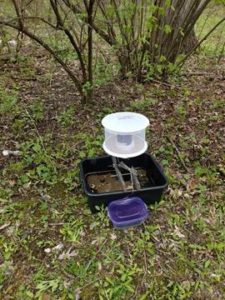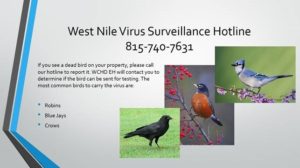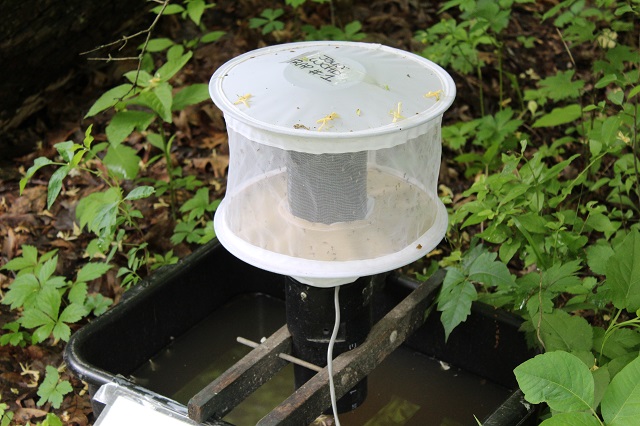Less than two weeks after the first two 2020 West Nile Virus positive mosquito samples were collected in Will County, the Will County Health Department has found another one, with a potency above the 640 mark. This means a high enough level of WNV that allows it to be transferred from a culex mosquito to a human. WNV can be carried to human beings by a culex mosquito that has bitted a bird infected with WNV. This positive sample was collected by a WCHD operated trap in Bolingbrook.
Earlier this month, in Will County, a trap operated in Romeoville turned up a positive sample, after being collected on August 13th. Meanwhile, a trap operated by the Will County Health Department in Plainfield had a sample collected on August 11th which also came up positive.

WCHD operates 14 mosquito traps around Will County, designed for frequent testing of possible West Nile Virus activity in the area.
The Will County Health Department also operates a West Nile Virus Surveillance Hotline. If you spot a dead bird on your property, you are asked to call the Health Department’s Surveillance Hotline at 1-815-740-7631 to report it. You will be contacted to determine if the bird can be picked up for testing. The most common birds that carry WNV are robins, blue jays, and crows.

As summer continues, Will County residents are reminded to wear long pants, long sleeves, and shoes and socks during peak mosquito hours, which are from dusk to dawn. Insect repellent containing DEET is also recommended. In addition, residents are reminded to remove standing water around their homes which could contribute to mosquito breeding. Examples of standing water would include water in gutters, old tires, sandboxes, and children’s wading pools.

